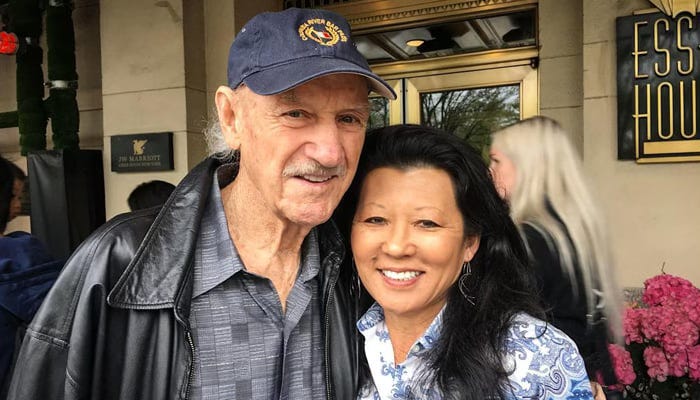This past fortnight I’ve been obsessed with the mystery surrounding actor Gene Hackman’s death. Hackman and his wife Betty Arakawa, who was 30 years younger than him (saying this because younger usually implies healthier and not for any other reason), were found dead. Was it a suicide pact? Did she kill Hackman and then kill herself? Poison? Murder? Eventually forensic pathologists solved the mystery.
Arakawa died around 11 February, from the rare hantavirus pulmonary syndrome—caused by the droppings of infected rodents.
Hackman died on 18 February, likely because he had advanced Alzheimer’s and once she was gone there was nobody to keep an eye out for him.
Their dog Zinnia died in a crate where she had been put after an medical procedure. The animal didn’t have a cellphone or a pacemaker so it was more difficult to ascertain when she died. But it seems clear that Arakawa died shortly after she put the dog in her crate. Poor Zinnia then died of starvation and dehydration. Two other dogs had access to food and were fine when someone eventually found this family on 26 February.
One reason many of us cite for getting married? ‘I don’t want to die alone.’ I’ve always found this extremely annoying and the Hackman-Arakawa case has just taught us that whether or not we live with family, we can still die alone. A partner and three dogs is no guarantee against this.
In many ways, being alone is a state of mind and not just the fact that you don’t share your physical space with anyone. If we don’t want to die alone, we must build as many social connections as we possibly can. It’s the single biggest factor in healthy ageing. Arakawa died a full two weeks before the three bodies were discovered. Nobody missed the family enough to check up on them in this time.
So get started. Go regularly for your daily walks and to the gym—so much so that people text you when they haven’t seen you for two days. Be drinking friends with the neighbour so he misses you every time you go out of town. Connect regularly with chosen family so that if you go incommunicado even for 8 hours, the people you text every day ask you why you are ignoring them. Invite friends over as often as you possibly can—and visit them when invited. Build rituals and communities that require you to show up in real life. My favourite was the ‘dropping in’ culture of the 1970s and 1980s. Let’s revive it.
In India we have another deep connection that acts as a safety net—our domestic workers. “I can’t stop thinking about how they truly provide community on top of everything else,” my friend D said to me. “They are the first to flag illness/domestic violence etc to outsiders.”
When I was out of town recently handling a personal crisis, my housekeeper messaged me not to worry about things back home. “I’ll take care of everything here and pray for you,” she texted.
My mother-in-law has a network of women who help her through the day and, unlike those of us who don’t have the time or energy to stop and listen, she knows every twist and turn in their family sagas—how the next wedding is being financed, who are their caregivers, what gives them grief and the outcome of their every single medical visit. She is deeply invested in their lives and loves.
Of course, apart from all this, in India at least, there’s that incessant chime notifying you that someone is at the front door. Milkman, bread person, courier, Amazon, car cleaner, food delivery, and who knows what else. Oops, gotta go, the bell just rang.





Thank you for writing this. I see that we're becoming more insular and this is where it can lead. I remember many years ago when I lived in the UK, one of my neighbours' body was discovered some days after he passed, simply because there was no one to miss him. Thank God for the Amazon courier, car cleaner and milk guy!
This is so true. My advice to the next generation, when they were setting up their homes, was to know at least one neighbour who could keep their spare key and/or have a spare gas cylinder. Both are perfect ice breakers.